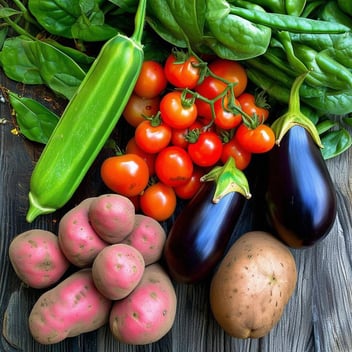Preparing Your South East Queensland Garden for the Summer Heat
Understanding the Challenges of South East Queensland Summers
The Subtropical Climate: What to Expect
South East Queensland’s summer is a symphony of blazing sun, stifling humidity, and occasional torrential rain. These extreme conditions demand thoughtful preparation. Plants face stress from soaring temperatures, while gardeners must contend with rapid evaporation and fluctuating weather patterns.
How Heat and Humidity Impact Plant Growth
The combination of heat and humidity can both nurture and harm your garden. While some plants thrive, others wilt under the pressure. Diseases like mildew proliferate in moist environments, and unprepared soil quickly dries, leaving roots thirsty.
Optimizing Soil Health for Summer Resilience
The Role of Organic Matter in Retaining Moisture
A garden is only as healthy as its soil. Enriching the earth with organic matter like compost or aged manure enhances its ability to hold moisture. These amendments create a sponge-like effect, ensuring plants receive consistent hydration.
Testing and Amending Soil for Optimal Conditions
Conduct a soil test to check pH and nutrient levels. Add lime for overly acidic soil or sulfur for alkaline patches, and fortify with natural fertilizers like blood and bone for balanced nourishment.
Water-Wise Gardening Techniques
Strategic Watering Practices for Conservation
Timing is everything. Water early in the morning to reduce evaporation and ensure roots absorb what they need before the day’s heat intensifies. Target the base of plants to avoid wasting water on leaves.
Using Mulch to Lock in Moisture
A thick layer of mulch is your garden’s best friend during summer. Organic options like straw or wood chips shield the soil from direct sunlight, minimize evaporation, and regulate temperature.
Choosing the Right Plants for Summer Success
Native Plants That Withstand the Heat
Local plants are evolution’s gift to gardeners. Varieties like grevilleas, bottlebrushes, and kangaroo paw are designed to thrive in Queensland’s challenging summers. They demand less water and are naturally resistant to pests.
Companion Planting for a Balanced Ecosystem
Pairing plants with complementary traits creates a resilient garden. Basil protects tomatoes from pests, while marigolds deter nematodes. This harmonious planting method reduces chemical dependency and enhances growth.
Providing Shade and Shelter for Vulnerable Plants
Creative Ways to Create Shade in Your Garden
Shade cloths, trellises, and even strategically placed garden furniture can shield delicate plants. Pergolas draped with climbers like bougainvillea not only protect but add beauty to the garden.
Using Ground Covers to Protect Soil
Low-growing plants like dichondra or creeping thyme act as living mulch, keeping soil cool and moist while adding an extra layer of visual appeal.
Managing Pests and Diseases During the Heat
Encouraging Beneficial Insects to Control Pests
Ladybugs, hoverflies, and lacewings are natural pest controllers. Attract them by planting nectar-rich flowers like alyssum or dill, and let nature balance the ecosystem.
Natural Remedies to Combat Common Summer Issues
Garlic sprays, neem oil, and insecticidal soaps are effective against pests like aphids and whiteflies. Baking soda solutions work wonders against mildew and fungal outbreaks.
Maintaining Garden Health Through Observation and Adaptation
Monitoring Plants for Signs of Stress
Inspect plants daily. Wilting leaves, discoloration, or unusual growth patterns often signal heat stress. Address issues promptly to prevent long-term damage.
Adjusting Practices to Respond to Weather Changes
Stay flexible. Sudden heatwaves or storms may require quick actions, like adding temporary shade or improving drainage. A well-prepared gardener adapts with the seasons.
By embracing these practices, your South East Queensland garden can thrive, even under the harshest summer conditions. With foresight, care, and a touch of creativity, you can transform your space into a verdant sanctuary.




